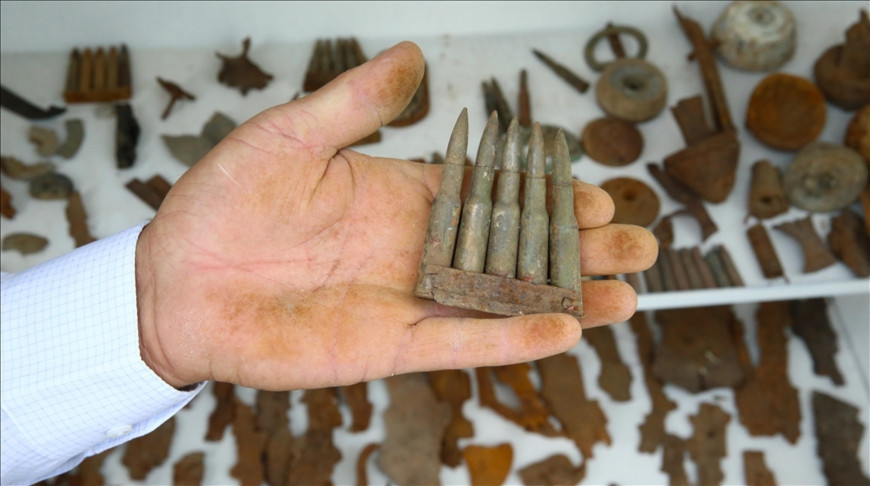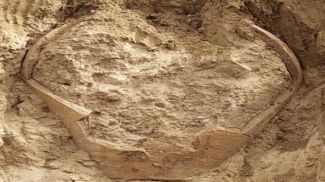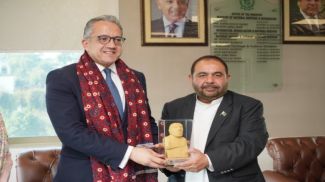
BINGOL, 8 August (BelTA - Anadolu) - Unearthed artifacts dating back
to the 1916–1917 Ottoman-Russian War in eastern Türkiye bring the
region’s wartime history to light.
Ali Kus, a native of Bingol province, first discovered bullets, shrapnel, horseshoes, and other war relics scattered across the approximately 2,700-meter-high (8,860-feet) mountains while herding livestock in his childhood village.
Unaware of their significance at the time, Kus sold many of these items to scrap dealers. Years later, a visit to a museum in Canakkale province made him realize their historical significance.
About a decade ago, Kus would return to his village in the summertime to collect war relics from the mountains. Using an off-road vehicle, he traveled long distances to former Russian positions, uncovering war remnants at every turn.
Now, 64 years old, he displays the collected artifacts in a section he established in front of the Azizan Martyrs’ Memorial, built by the government to honor those who lost their lives during the Ottoman-Russian War.
In 2024, the Turkish Ministry of Culture and Tourism officially designated the region as a protected site.
Kus told Anadolu that he hopes to help people understand the sacrifices made to preserve their homeland by displaying these artifacts. He also noted the presence of numerous soldier graves in the area, as well as his mini-museum, which contains the buttons, helmets, chest keys, bullets, kukris, rifles, and rifle stocks of troops who served on that front.
His grandson, as well as local children and residents, learn about history through the mini-museum and the war relics it preserves.
Ali Kus, a native of Bingol province, first discovered bullets, shrapnel, horseshoes, and other war relics scattered across the approximately 2,700-meter-high (8,860-feet) mountains while herding livestock in his childhood village.
Unaware of their significance at the time, Kus sold many of these items to scrap dealers. Years later, a visit to a museum in Canakkale province made him realize their historical significance.
About a decade ago, Kus would return to his village in the summertime to collect war relics from the mountains. Using an off-road vehicle, he traveled long distances to former Russian positions, uncovering war remnants at every turn.
Now, 64 years old, he displays the collected artifacts in a section he established in front of the Azizan Martyrs’ Memorial, built by the government to honor those who lost their lives during the Ottoman-Russian War.
In 2024, the Turkish Ministry of Culture and Tourism officially designated the region as a protected site.
Kus told Anadolu that he hopes to help people understand the sacrifices made to preserve their homeland by displaying these artifacts. He also noted the presence of numerous soldier graves in the area, as well as his mini-museum, which contains the buttons, helmets, chest keys, bullets, kukris, rifles, and rifle stocks of troops who served on that front.
His grandson, as well as local children and residents, learn about history through the mini-museum and the war relics it preserves.













